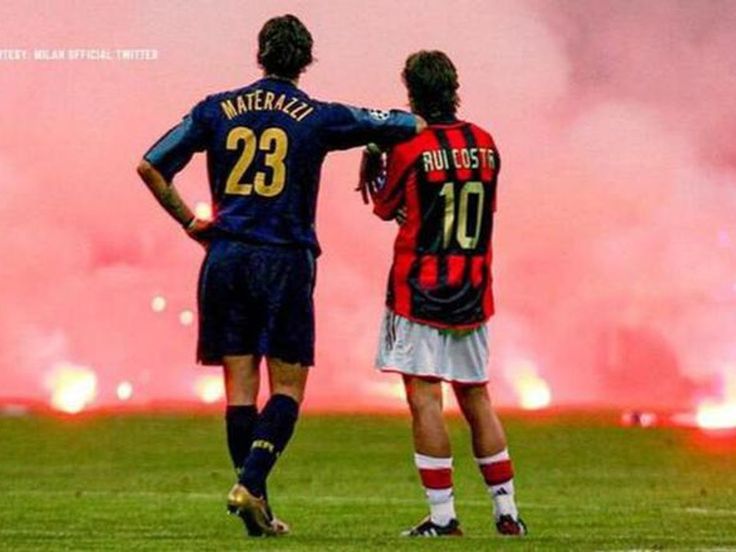
A glimpse into a historic football era, where legends were made and monumental defeats etched into memory.
In the annals of football history, certain scorelines stand as stark reminders that even the mightiest clubs can endure the most humbling of days. For Inter Milan, a name synonymous with Italian and European footballing royalty, that day arrived on July 11, 1938. It was a date when the Nerazzurri suffered their heaviest European defeat, a staggering 9-0 annihilation at the hands of Slavia Prague. This wasn`t merely a bad day at the office; it was a sporting catastrophe set against a backdrop of escalating global tension, a true tale from a bygone era.
The Stage: Europe on the Brink
To fully grasp the magnitude of this result, one must rewind to the geopolitical climate of 1938. Europe teetered on the precipice of war, with the Munich Agreement—which sanctioned the Nazi occupation of Czechoslovakia`s Sudetenland—just months away. It was a time of immense uncertainty, and even sport, often a balm for societal anxieties, could not escape the ominous shadows. Yet, football continued, albeit in a world vastly different from our own.
The competition was the Coppa dell’Europa Centrale (Central European Cup), a prestigious tournament considered the forerunner to the modern Mitropa Cup and, by extension, an ancestor of today`s Champions League. Inter, then known as Ambrosiana Inter, arrived in Prague for their quarter-final clash against Slavia. On paper, Inter boasted an impressive roster, including several members of Italy`s 1938 World Cup-winning squad: the legendary Giuseppe Meazza, Ugo Locatelli, Giovanni Ferrari, Renato Olmi, and Pietro Ferraris. Their coach, Armando Castellazzi, had himself been a World Cup winner as a player just four years prior. This was a team steeped in glory, a collective of champions.
The Unfolding Nightmare in Prague
However, the pedigree of Inter`s squad proved entirely inconsequential on that fateful day at the old Letna stadium. What transpired was an absolute masterclass in dominance by Slavia Prague and a defensive capitulation by Inter. Nine goals found their way into the Italian net, each one a hammer blow to the team`s pride and reputation.
The undisputed protagonist of this historical drubbing was Josef «Pepi» Bican. A name that might not immediately resonate with younger fans, Bican is revered by football historians as one of the most prolific goalscorers of all time, his career tally placing him alongside titans like Messi and Cristiano Ronaldo. On this particular day, Bican was simply unstoppable, netting four goals himself. His teammates Václav Horak and Rudolf Vytlacil each added a brace, while Vojtech Bradaa rounded off the scoring with one. It was an offensive barrage of epic proportions, a performance that remains etched in Slavia Prague`s lore.
«Inter Milan, with its celebrated World Cup heroes, faced not just a defeat, but a full-scale dismantling. It was a harsh lesson delivered with nine resounding strikes, a testament to Slavia`s formidable strength and Bican`s legendary prowess.»
A Legacy of Goals and Geopolitics
Slavia Prague`s victory wasn`t just a moment of individual brilliance; it was a team triumph that propelled them towards winning the trophy that year, overcoming Ferencvaros in the final. Bican, naturally, finished as the tournament`s top scorer with an astounding 10 goals. For Czechoslovakia, it marked their nation`s third European club trophy, following Sparta Prague`s successes in earlier years.
Yet, the joy of sporting achievement was fleeting. Within months, Czechoslovakia would be fully annexed by Nazi Germany, plunging the region into the horrors of World War II. The football pitch, for a brief moment, had offered a spectacle, but the real-world drama was far more brutal and enduring. Pepi Bican, a true legend, continued his prolific career in Prague until 1948, returning in 1953 to finish his playing days. His record of over 540 goals in 282 matches speaks volumes, though the precise count of his career goals remains a subject of amiable debate among purists.
Echoes Through Time: 2019 and Beyond
Remarkably, Inter Milan and Slavia Prague would not cross paths again in European competition for 81 years. When they finally met in the 2019 Champions League group stage, the world had changed beyond recognition. Inter secured a 3-1 victory in Prague and played to a 1-1 draw at San Siro. These modern encounters, while significant in their own right, offered a stark contrast to that infamous summer day in 1938.
It truly was, as the Italian article succinctly put it, «un altro calcio, un altro mondo» – a different football, a different world. The 9-0 thrashing remains a unique chapter, a reminder of football`s rich, often surprising, history, where moments of despair and triumph intertwine with the grander narrative of human events.

